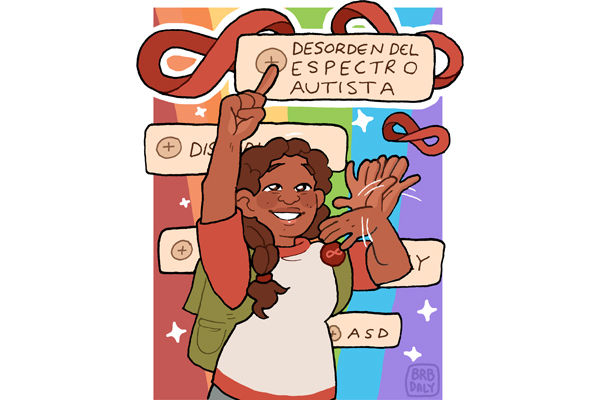UT’s Special Education Department will offer its first course taught entirely in a foreign language next semester.
Mark O'Reilly, special education department chair, said the department will teach the course, known as Autism Spectrum Disorders: Perceptions and Realities, in Spanish. During the course, O'Reilly said students will learn about diagnosing autism spectrum disorders, resources for individuals with ASD and best practices regarding assessment and intervention.
Course instructor Fabiola Vargas Londoño said she noticed language as a barrier to intervention therapies during her clinical work. Vargas Londoño, a special education graduate student, said Spanish speaking families that wanted services in Spanish needed to wait longer because she was the only Spanish-speaking Board Certified Behavior Analyst on staff.
“If we say that the goal is parent training and there's a communication barrier, then you can't reach all of the cultural perspectives and the goals that the parents need to set up,” Vargas Londoño said.
Although the students who are interested in the course will not be required to take a Spanish language exam before enrolling, Vargas Londoño said they should be able to communicate proficiently.
“We need certain levels of just being able to understand the class because if not, it's going to be too hard to just (learn) new content and then a new language,” Vargas Londoño said.
O’Reilly said the course will be taught in Spanish because of the amount of Spanish speakers in Texas. According to a 2015 survey by the U.S. Census Bureau, almost 30% of Texans speak Spanish at home. 1 in 59 8-year-old children are diagnosed with ASD, according to the Centers for Disease Control and Prevention.
Nataly Lim is a special education graduate student who is bilingual in English and Mandarin. She said she would have trouble talking with a parent about ASD in a different language because so much of the academic language is in English.
“If I am learning about autism in Spanish, then I have that language to be able to communicate to those parents and the terminology for things to explain it to them,” Lim said.
Lim said students will be better equipped to communicate with families effectively by providing this course in Spanish.
“Knowing about the disability will give them another perspective,” Vargas Londoño said. “Maybe they're not going to be working with a specific family, (but that) will give them another perspective.”





















